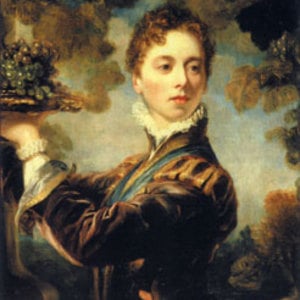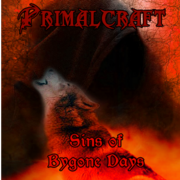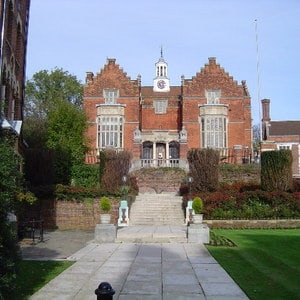Clare and Byron had managed to jump on their pony. They cantered off at top pony speed, just eluding the older boys in pursuit. Once they’d got to a safe distance up the hill and away from the pond, they came upon a sobbing boy in a heap by the side of the road. It was Lord De La Warr, fifteen years old, in the same year as Clare. The older boys had painted a muddy stripe down the length of his nose while they held him captive. The mud smeared on his body gave him a kind natural camouflage in the grass.
“Why De La Warr,” said Byron cheerfully. “I didn’t recognize you in your war paint.” Clare looked on from behind Byron.
De La Warr glanced up briefly at the two boys on the pony’s back and then buried his head in his arms in the long grass. He started sobbing again.
“Now if there’s one thing I hate,” said Byron, still good-humored, “it’s to find a crying boy beside the road.” He jumped down into the lane. “Now, what about joining Clare on the pony’s back? Take my place, won’t you?”
De La Warr’s sobs gradually stopped. “Up there?” he asked.
“Yes, up there. Now, time’s a wasting. Up you get.” Byron bent over and made a stirrup out of his hand to help him up out of the grass. He lifted him up via De La Warr’s bare foot to the pony’s back. “Who knows whether those other boys may not be following us?”
Soon the three boys were back at school and on the bed in Byron’s room. De La Warr had dressed in some of Byron’s spare clothes. They’d stolen a teacake from the buttery. They were all three eating in in huge wedges that they held in their hands. Clare had discovered Byron’s copy of the Arabian Nights under his mattress. This was a book known, even to schoolboys, to have lascivious stories. Their stereotype in their era of the Middle East was a place of great promiscuity, of harems, of slave girls and of steam baths.
Clare had discovered a story which turned on beautiful women showing themselves naked to a humble market porter. They taunted him with not knowing the names of their private parts. These the women gave unlikely names, including “husked sesame,” and “mint of the dyke.” This had convulsed Clare and De La Warr. They’d never heard anything like it before. They couldn’t stop laughing.
Byron, who already knew the story, and thought it more strange than funny, looked on as the two younger boys laughed. The overall effect of The Arabian Nights had been to make him want to visit Turkey, not to laugh at it. The two younger boys saw his refusal to join in their fun. One of them kicked him. “C’mon Byron. Do admit! It’s comical,” said Clare.
Byron looked sadly at the two other boys. He felt a gulf separated him from them, though they were only a year apart. "The coming morrow from thy youthful minds, will sweep away my name, nor leave a trace behind.”
Clare and De La Warr looked at each other. They spent their days translating Latin and Greek verses. They recognized it as a line of poetry, but they couldn’t identify the source. “What’s that from?” asked Clare.
Byron wouldn’t answer. He looked the other way. He looked somber. Byron had a reputation in the school already and De La Warr then had an idea. “You didn’t write it, did you Byron?”
Byron refused to answer. He was convinced that the two younger boys would end up friends with one another and leave him in the cold.
Clare and De La Warr had a different idea. One looked at the other and raised his eyebrows. The other winked his assent. Clare knelt and took Byron’s arms from behind, so he couldn’t move. De La Warr climbed between Byron’s unresisting legs and patted the buttons of his crotch of his trousers. “What’s this called, Byron? Is it your mint of the dyke?”
“Is it your husked sesame?” asked Clare exploding into giggles.
“Show us, show us!” they both chanted.











Comments (2)
See all